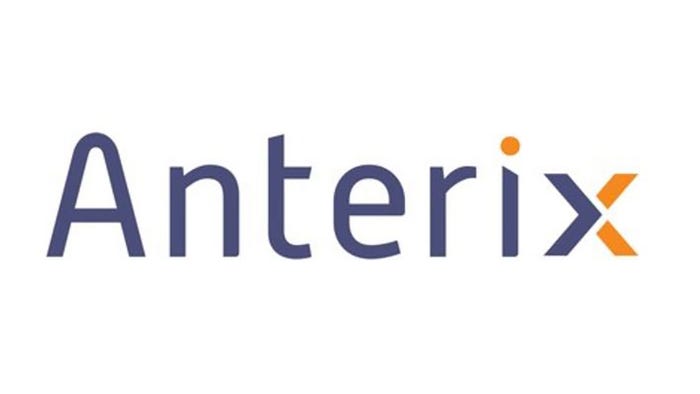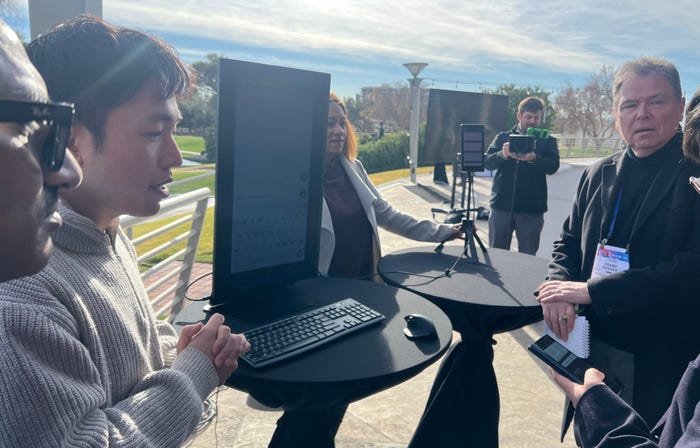Motorola Solutions reports record LMR sales in 2019, despite Florida setbackMotorola Solutions reports record LMR sales in 2019, despite Florida setback

Motorola Solutions posted its second consecutive year of record North American land-mobile-radio (LMR) sales, despite the company’s failure to reach a contract agreement for a statewide Florida network—an initiative in which Motorola Solutions still hopes to participate, according to company officials.
During the quarterly earnings call conducted last week, Motorola Solutions CEO Greg Brown repeatedly emphasized the company’s LMR business “all in”—not just building networks, but also providing items such as maintenance services—totals for 2019 topped the record levels established in 2018, which was key part of the company’s overall record year in 2019.
“In our Products segment, we grew revenue mid-single digits, driven by a second consecutive year of record land-mobile-radio sales in North America, as well as strong growth in our video-security business,” Brown said during the earnings call, which was webcast.
Brown also addressed the reasons behind the fact that company did not reach a contract agreement with the state of Florida after being selected to build and maintain a statewide P25 network—the largest LMR opportunity in North America, according to company officials.
“We did anticipate getting the state of Florida; we didn’t [get a contract signed],” Brown said. “I think it was largely a result of over a year and a half of delays and lawsuits and appeals, primarily by the incumbent competitor. On top of that, there’s been some administration-management changes. But I think it’s fair to say that there was fluidity in scope and some design assumptions.”
Although asked about “potentially unattractive terms” associated with the Florida situation, Brown did not mention the “termination for convenience” clause that a Florida Department of Management Services (DMS) letter claimed Motorola Solutions officials described as a “deal breaker.” Acceptance of the clause supposed to be a condition of a qualifying bid, such as the $670 million offer Motorola Solutions made that was $300 million less than the bid provided by incumbent L3Harris.
After repeated attempts to get Motorola Solutions to sign a contract based on its bid, the state of Florida last month sent a letter to Brown that the state would “evaluate options and move toward the new procurement of a next-generation system.”
During the past month, IWCE’s Urgent Communications repeatedly has asked state officials what kind of technology would be employed in a “next-generation system.” To date, the state of Florida has not responded to any of the inquiries.
While a P25 system certainly would leverage technology that is more modern than the aging EDACS network currently used by the state of Florida, the P25 standard is more than 20 years old and not really a “next-generation” technology, according to industry sources. In addition, the problems with the Motorola Solutions P25 procurement and contract likely would surface again, with little hope of resolutions.
LTE-based technologies like push-to-talk-over-cellular (PoC) and mission-critical-push-to-talk (MCPTT) services are much newer and fit the “next-generation” mold, but they are unproven in mission-critical public-safety scenarios. AT&T has announced that it will unveil its MCPTT offering for FirstNet users by the end of March.
If a procurement could be completed smoothly, LTE-based technologies theoretically could be deployed quickly by carriers, because their cell sites and networks already are in place.
Under its current contract with L3Harris, the state of Florida must notify L3Harris that it needs to extend the existing EDACS system by the end of June—a full year before the existing deal with L3Harris is due to expire. A new deal would have be negotiated for any extension.
Florida’s legislature is in session through March 13 and is not scheduled to convene again for more than a year. If legislative action is needed for the state to pursue a new direction for statewide communications supporting Florida first responders, it would seem that a decision would need to be made apparent during the next month, according to observers following the situation.
Brown expressed hope that Motorola Solutions could be part of Florida’s new direction for a statewide communications system.
“We have an extensive presence throughout the state already,” Brown said during the earnings call. “We’d still look forward to participating in what the state of Florida decides to do next … I think we’re going to stay engaged with the state of Florida. We would like to think there’s still opportunity to reengage and participate in that going forward.”
When asked whether the Florida situation could be interpreted as a weakness in LMR, Brown said the company’s consecutive record years of LMR performance indicate otherwise.
“In terms of overall demand for LMR, as I mentioned, we’ve had two record years back-to-back,” Brown said. “We’ve had the state of Pennsylvania. We have the state of Iowa. And we had the largest LMR deal in the history of the company in Canada. So LMR remains strong.
“And these deals continue to come in, and they’re usually accompanied with 7-, 10- and 12-year maintenance contracts, as well. I think the state of Florida had a lot of factors involved. We would still like to participate and hope we have a role going forward, but that’s really the state of play at this point in time.”
Motorola Solutions completed the Iowa Statewide Interoperable Communications System (ISICS) almost a year-and-a-half ago, with Gov. Kim Reynolds announcing that the project had been finished on time and on budget, according to a Motorola Solutions spokesperson. The procurement for that deal was conducted
Motorola Solutions was awarded the contract for the Pennsylvania Statewide Radio Network (PA-STARNet) in 2016. The new P25 network from Motorola Solutions is scheduled to be completed in 2021, when the existing statewide OpenSky system from L3Harris is supposed to be phased out.
Ontario, Canada, last year awarded Bell Mobility a $765 million contract to build and maintain a P25 network. The network will utilize Motorola Solutions P25 technology, and the company is working with Bell Mobility to build and maintain the new P25 system for the province. Motorola Solutions has not announced how much revenue it will receive from the deal, but company officials have said that it is Motorola Solutions’ largest Canadian award.
Another LMR contract announced during the earnings call was a $64 million agreement with the state of Arkansas, which is having Motorola Solutions upgrade the existing P25 Phase I network to P25 Phase II, as well as replacing base stations and microwave equipment, according to a Motorola Solutions spokesperson.





